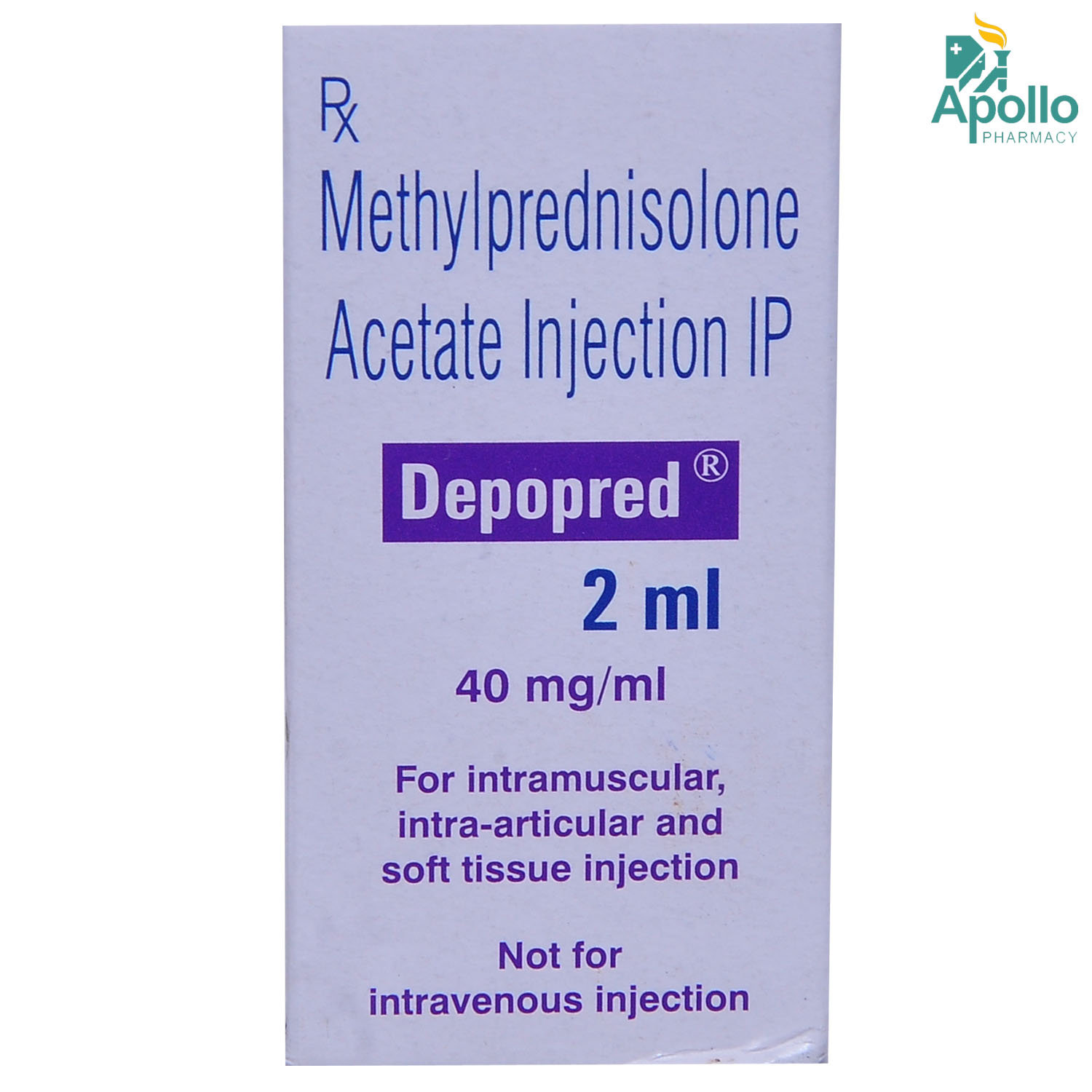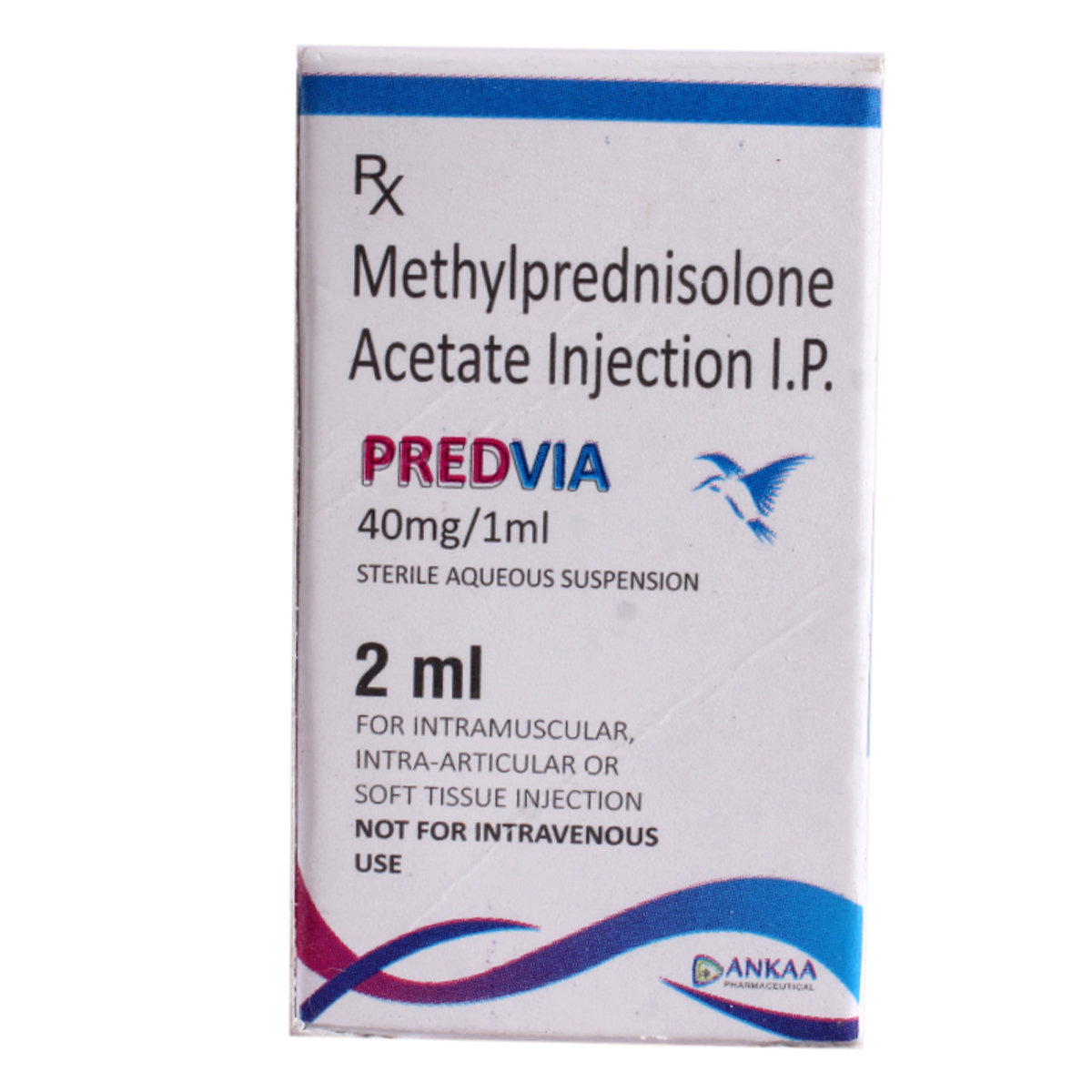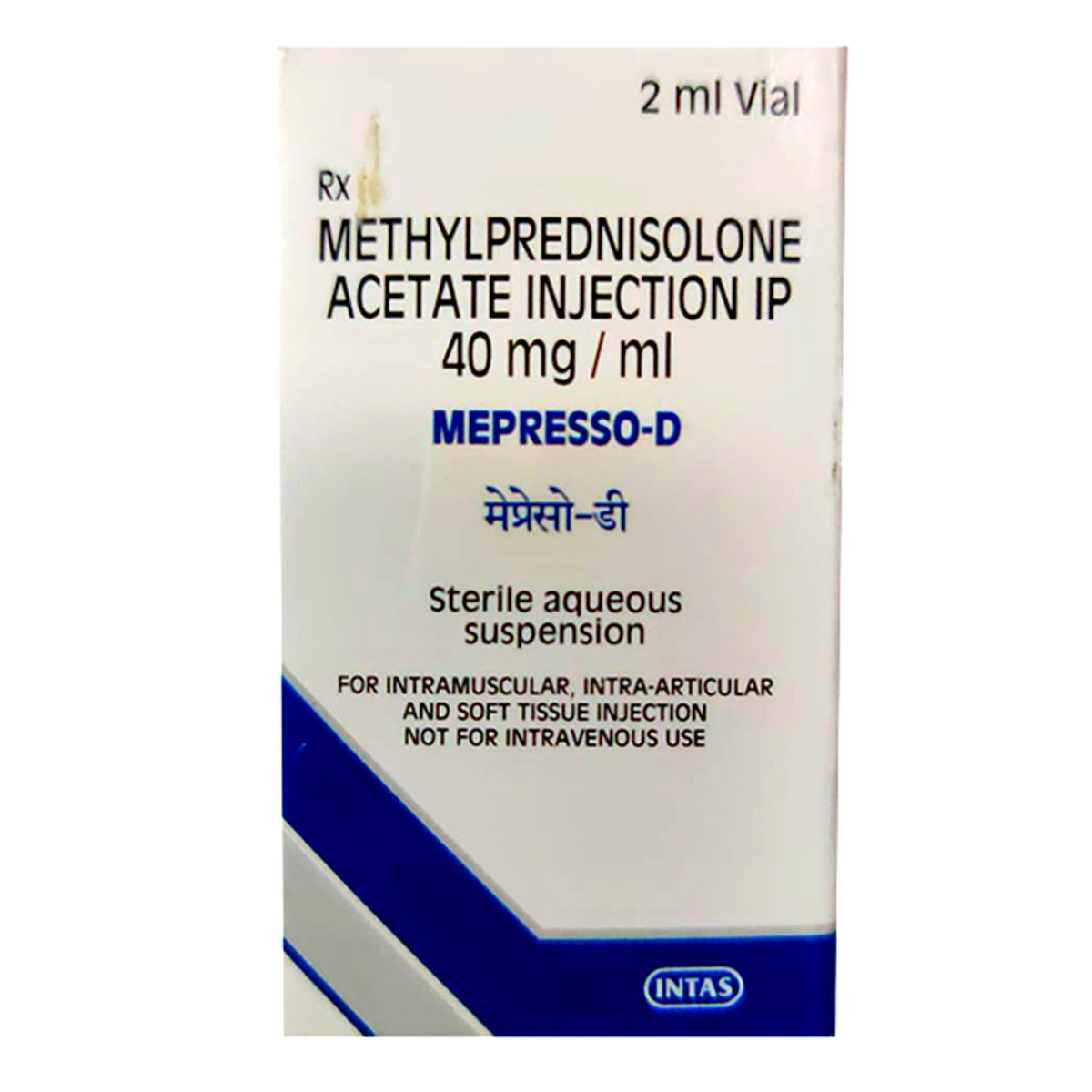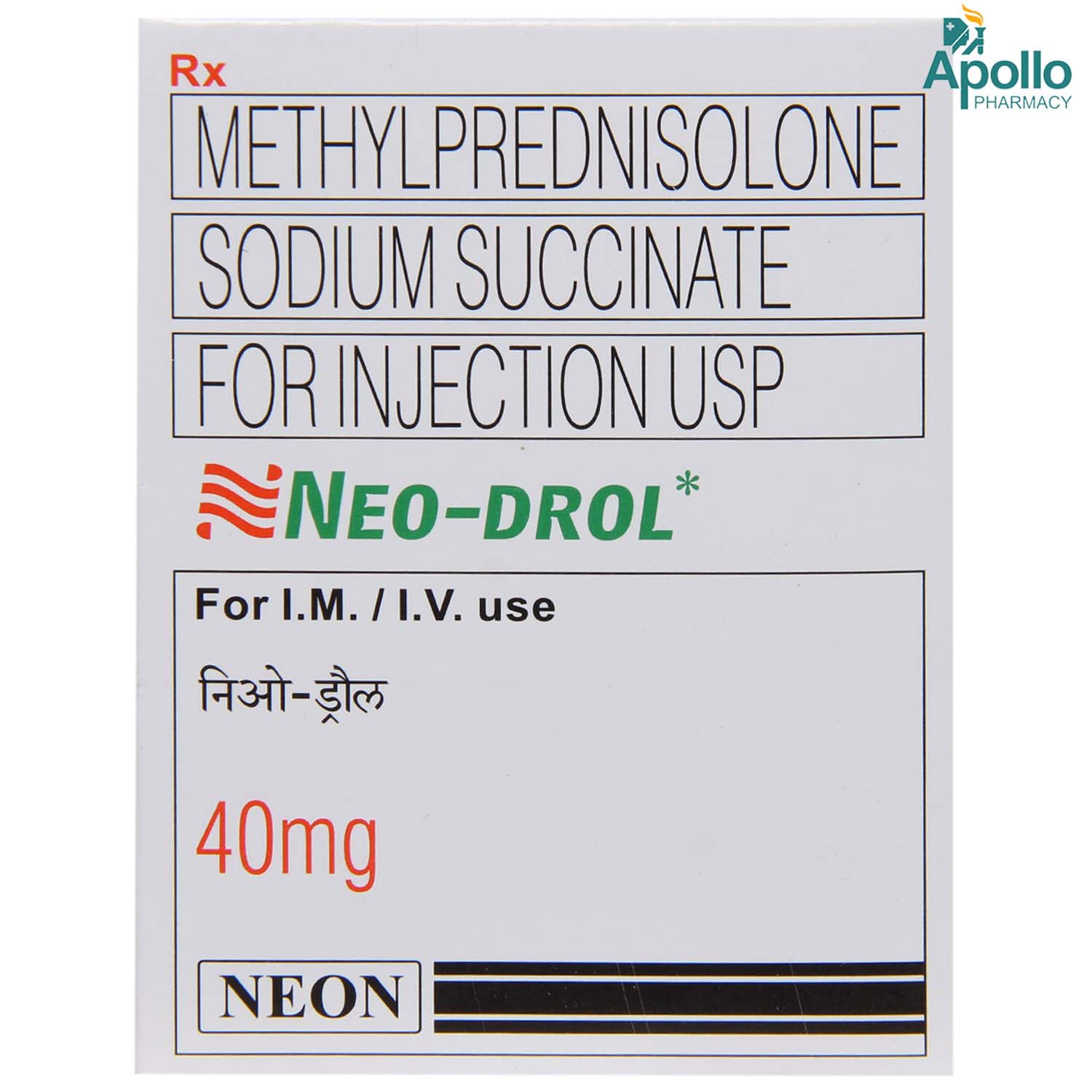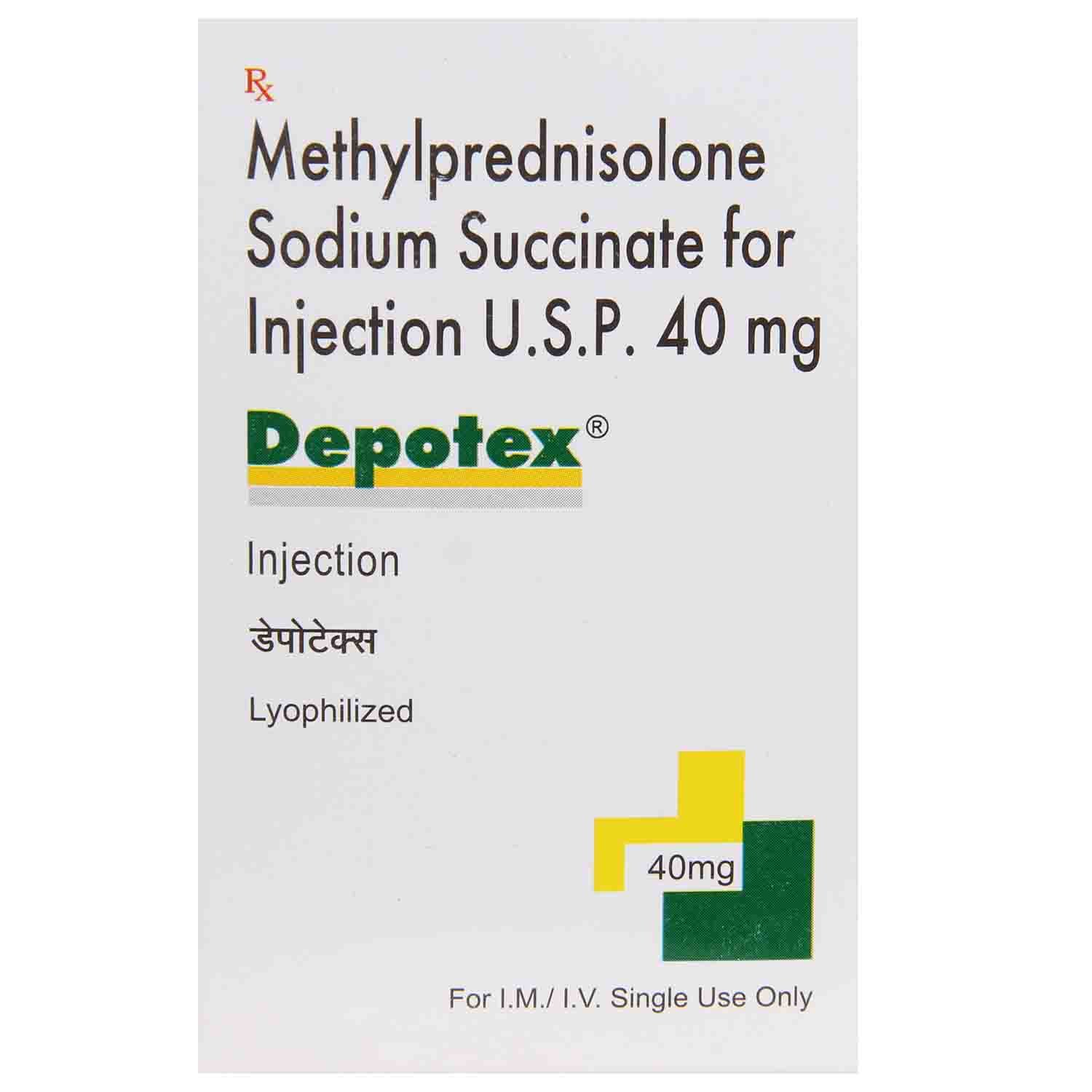एडिकॉर्ड 40 एमजी इंजेक्शन 1's

(Inclusive of all Taxes)
Get Free delivery (₹99)
Know Your Delivery Time
Provide Delivery Location
 Prescription drug
Prescription drugWhats That

Secure Payment

India's Most Trusted Pharmacy

Genuine Products
Drug-Drug Interactions
Drug-Drug Interactions
Login/Sign Up
Co-administration of Edicord 40 mg Injection and Vigabatrin together can increase the risk or severity of side effects associated with vision loss.
How to manage the interaction:
Taking Edicord 40 mg Injection with Vigabatrin is not recommended, it can be taken if prescribed by the doctor. Regular eye check ups are advised during this treatment. Do not discontinue any medication without consulting a doctor.
When Edicord 40 mg Injection is taken with Mifepristone, it may decrease the levels of Edicord 40 mg Injection, which may be less effective in treating your condition.
How to manage the interaction:
Taking Edicord 40 mg Injection with Mifepristone is not recommended, but it can be taken if prescribed by the doctor. Do not discontinue any medication without consulting a doctor.
Co-administration of Methylphenidate with Iohexol may increase the risk or severity of seizure (a sudden, violent, uncontrollable contraction of a group of muscles).
How to manage the interaction:
Taking Edicord 40 mg Injection with Iohexol is not recommended, please consult a doctor before taking it. Do not discontinue any medication without consulting a doctor.
Co-administration of Norfloxacin with Edicord 40 mg Injection can increase the risk or severity of tendinitis (inflammation of the tendons attached to the muscle and bones).
How to manage the interaction:
Taking Norfloxacin with Edicord 40 mg Injection together can result in an interaction, it can be taken if a doctor has advised it. However, if you experience any symptoms such as Stiff joints or difficulty moving your joints, joint pains, Swelling, or skin discoloration, contact a doctor immediately. Do not discontinue any medications without consulting a doctor.
The use of Etanercept with Edicord 40 mg Injection can increase the risk of serious infections.
How to manage the interaction:
There may be a possibility of interaction between Etanercept and Edicord 40 mg Injection, but it can be taken if prescribed by a doctor. However, if you experience fever, chills, diarrhea, sore throat, muscle pains, breathing difficulty, blood in your coughing fluid, weight loss, red or irritated skin, body sores, and discomfort or burning when you urinate, consult a doctor. Do not discontinue any medication without consulting a doctor.
Taking Clarithromycin with Edicord 40 mg Injection together may significantly increase the blood levels of Edicord 40 mg Injection.
How to manage the interaction:
Although there is a possible interaction, Clarithromycin can be taken with Edicord 40 mg Injection if prescribed by the doctor. Consult the prescriber if you experience side effects such as swelling, weight gain, high blood pressure, high blood glucose, muscle weakness, depression, acne, thinning skin, stretch marks, easy bruising, bone density loss, eye problems, menstrual irregularities, excessive growth of facial or body hair, and abnormal distribution of body fat, especially in the face, neck, back, and waist. Do not discontinue any medications without a doctor's advice.
Taking Thalidomide together with Edicord 40 mg Injection may increase the risk of blood clots.
How to manage the interaction:
Although taking thalidomide and Edicord 40 mg Injection together can result in an interaction, it can be taken if your doctor has prescribed it. However, consult the doctor immediately if you experience symptoms such as chest pain, shortness of breath, difficulty breathing, coughing up blood, sudden loss of vision, pain, redness or swelling in an arm or leg, and numbness or weakness on one side of the body. Do not discontinue any medications without consulting a doctor.
Using adalimumab together with Edicord 40 mg Injection may increase the risk of serious infections.
How to manage the interaction:
There may be a possibility of interaction between Edicord 40 mg Injection and Adalimumab, but it can be taken if prescribed by a doctor. However, if you experience fever, chills, diarrhea, sore throat, muscle pains, breathing difficulty, blood in your coughing fluid, weight loss, red or irritated skin, body sores, and discomfort or burning sensation when you urinate, consult a doctor. Do not stop using any medications without a doctor's advice.
Using baricitinib together with Edicord 40 mg Injection may increase the risk of serious infections.
How to manage the interaction:
Although there is an interaction, baricitinib can be taken with Edicord 40 mg Injection if prescribed by the doctor. However, if you experience fever, chills, diarrhea, sore throat, muscle aches, shortness of breath, blood in your coughing fluid, weight loss, red or irritated skin, body sores, and discomfort or burning when you urinate, severe abdominal pain, nausea, or vomiting, consult a doctor. Do not discontinue any medications without a doctor's advice.
Using cladribine together with Edicord 40 mg Injection may increase the risk of serious infections.
How to manage the interaction:
Taking Cladribine with Edicord 40 mg Injection together can result in an interaction, but it can be taken if a doctor has advised it. However, if you experience fever, chills, diarrhea, sore throat, muscle pains, breathing difficulty, blood in your coughing fluid, weight loss, red or irritated skin, body sores, and discomfort or burning sensation when you urinate, consult a doctor. Do not stop using any medications without a doctor's advice.
Drug-Food Interactions
Drug-Food Interactions
Login/Sign Up
Grapefruit Juice, Grapefruit
How to manage the interaction:
Taking Edicord 40 mg Injection with Grapefruit may increase the blood level of Edicord 40 mg Injection. Avoid consuming Grapefruit and Grapefruit juice while taking Edicord 40 mg Injection.
Product Substitutes

Have a query?
FAQs
Disclaimer
Author Details
We provide you with authentic, trustworthy and relevant information
Buy best Endocrine System products by
Macleods Pharmaceuticals Ltd
Abbott India Ltd
Intas Pharmaceuticals Ltd
Sun Pharmaceutical Industries Ltd
Lupin Ltd
Elder Pharmaceuticals Ltd
Mankind Pharma Pvt Ltd
East West Pharma India Pvt Ltd
Leeford Healthcare Ltd
Tas Med India Pvt Ltd
Prevego Healthcare & Research Pvt Ltd
Samarth Life Sciences Pvt Ltd
Alteus Biogenics Pvt Ltd
GlaxoSmithKline Pharmaceuticals Ltd
Pfizer Ltd
Knoll Healthcare Pvt Ltd
Neon Laboratories Ltd
Icon Life Sciences
Morepen Laboratories Ltd
Cipla Ltd
Eris Life Sciences Ltd
Merck Ltd
Wockhardt Ltd
Cadila Healthcare Ltd
Micro Labs Ltd
Primus Remedies Pvt Ltd
Scudder Life Sciences Pvt Ltd
Ferring Pharmaceuticals Pvt Ltd
Olcare Laboratories Pvt Ltd
United Biotech Pvt Ltd
Zydus Cadila
AAA Pharma Trade Pvt Ltd
Alna Biotech Pvt Ltd
Divine Savior Pvt Ltd
Mcronus Lifescience Pvt Ltd
Rockmed Pharma Pvt Ltd
Zydus Healthcare Ltd
Alkem Laboratories Ltd
Ankaa Pharmaceutical
Celon Laboratories Pvt Ltd
Erinyle Pharma
Geneaid Pharmaceuticals
Kivi Labs Ltd
Medopharm Pvt Ltd
Novartis India Ltd
Origin Health Care Pvt Ltd
Overseas Health Care Pvt Ltd
Sanatra Healthcare Ltd
Signova Pharma
Wallace Pharmaceuticals Pvt Ltd
Zee Laboratories Ltd
Aequitas Healthcare Pvt Ltd
Capital Pharma
Clamed Healthcare Pvt Ltd
Comed Pharma
Corona Remedies Pvt Ltd
Crestige Life Care
GLS Pharma Ltd
German Remedies Ltd
Gland Pharma Ltd
Knoll Pharmaceuticals Ltd
Lyceum Life Sciences Pvt Ltd
Medlogix Bio Lifesciences
Nitro Organics Pvt Ltd
Praise Pharma
Regenix Drugs Ltd
Scott Edil Pharmacia Ltd
Silver Cross Medisciences Pvt Ltd
Slania Life Sciences
Solveig Life Sciences Pvt Ltd
Startos Healthcare Pvt Ltd
Torrent Pharmaceuticals Ltd
Vasu Organics Pvt Ltd
Actus Health Care
Akumentis Healthcare Ltd
Alathea Biotec Pvt Ltd
Arinna Lifesciences Ltd
Arrows 2 Pharmaceuticals
Arvincare
Atlantis Pharmacorp Inc
Biocute Life Care
Cadell Healthcare Pvt Ltd
Chemo Biological Ltd
Comed Chemicals Ltd
Corazon Pharma Pvt Ltd
Hetero Drugs Ltd
Human Biolife India Pvt Ltd
Icarus Health Care Pvt Ltd
Ikon Pharmachem
Intra Labs India Pvt Ltd
K C Laboratories
Kabson Medicare
Laborate Pharmaceuticals India Ltd
Levin Life Sciences Pvt Ltd
Novo Nordisk India Pvt Ltd
Oaknet Healthcare Pvt Ltd
Omni Lifesciences Pvt Ltd
Proxima Healthcare
Questus Pharma Pvt Ltd
Rhine Biogenics Pvt Ltd
Rhumasafe Pharma
Sendan Pharmaceuticals Pvt Ltd
Serum Institute Of India Pvt Ltd
Solas Healthcare
Solis Pharmaceuticals
Swisskem Healthcare
Synergy Pharmaceuticals
Troikaa Pharmaceuticals Ltd
Trumac Healthcare
Unifaith Biotech Pvt Ltd
Waylon Biotech Pvt Ltd
Acinom Healthcare
Actus Healthcare Pvt Ltd
Adonis Laboratories Pvt Ltd
Aeobury Healthcare Pvt Ltd
Alexpen Remedies
Allergan Healthcare India Pvt Ltd
Ang Healthcare India Pvt Ltd
Aristo Pharmaceuticals Pvt Ltd
Arlak Biotech Pvt Ltd
Asarva Life Sciences Pvt Ltd
Atlina Life Sciences Pvt Ltd
Azillian Healthcare Pvt Ltd
Azurite Bio Science Pvt Ltd
BDR Pharmaceuticals Internationals Pvt Ltd
Baxium Healthcare
Bencure Life Sciences Pvt Ltd
Berniss Pharmaceuticals
Bestochem Formulations (I) Ltd
Bioceutics Inc
Biochemix Health Care Pvt Ltd
Biohexol Lifesciences
Biokindle Lifesciences Pvt Ltd
Biophar Lifesciences Pvt Ltd
Biosync Pharmaceutical Pvt Ltd
Brochem Health Care Pvt Ltd
Cadila Pharmaceuticals Ltd
Canixa Life Sciences Pvt Ltd
Capri Pharmaceuticals Pvt Ltd
Chandra Bhagat Pharma Ltd
Chemo Healthcare Pvt Ltd
Cosmic Life Sciences
Cycus Healthcare Pvt Ltd
Cyrus Remedies Pvt Ltd
D D Pharmaceuticals Pvt Ltd
DR Johns Lab Pharma Pvt Ltd
Daris Biocare
Dewcare Concept Pvt Ltd
Dhamus Pharma
Drukst Biotech Pvt Ltd
Edura Pharmaceuticals Pvt Ltd
Emcure Pharmaceuticals Ltd
Erinyle Health Care Pvt Ltd
Eris Pharma
Eumedica Pharamceuticals
Exeltis Healthcare Global
Fams Pharma Pvt Ltd
Galaxy Biotech
Genesis Biotech
Glowderma Lab Pvt Ltd
Grandcure Healthcare Pvt Ltd
Grantham Lifesciences
Hymax Healthcare Pvt Ltd
Ind Swift Laboratories Ltd
Ind-Swift Ltd
Innovative Life Sciences Pvt Ltd
Innovative Pharmaceuticals Pvt Ltd
Intra Life Pvt Ltd
J B Chemicals & Pharmaceuticals Ltd
JB CHEMICALS & PHARMA LTD
Johnlee Pharmaceuticals Pvt Ltd
Kaizen Pharmaceuticals Pvt Ltd
Keimed Pvt Ltd
Kenn Pharma Pvt Ltd
Kiosence Health Care Pvt Ltd
Knoll Health Care Pvt Ltd
Koye Pharmaceuticals Pvt Ltd
Laxian Healthcare
Laxis Biosciences
Linux Laboratories Pvt Ltd
M/S Raj Distributors
Makers Laboratories Ltd
Med Will Life Sciences
Medgen Drugs And Laboratories Pvt Ltd
Medgenix Pharma India Pvt Ltd
Medishri Healthcare Pvt Ltd
Mediwill Lifesciences Pvt Ltd
Meridian Healthcare Pvt Ltd
Midas Health Care
Novel Tissues P Ltd
Nuper Therapeutics
OPINOR PHARMACEUTICALS PVT LTD
Oddiant Formulations
Olamic Pharma Pvt Ltd
Pills and Remedies Pvt Ltd
Plezier Healthcare
RB Pharmaceuticals
Ralolancer Pharmaceutical
Ronish Bioceuticals
Saffron Formulations Pvt Ltd
Salvus Pharma
Scotwin Healthcare Ltd
Senvion Biotech
Shreya Life Sciences Pvt Ltd
Siramed Pharmaceuticals Opc Pvt Ltd
Skylane Pharmaceuticals
Skymap Pharmaceuticals Ltd
Solvate Laboratories Pvt Ltd
Stafford Laboratories Pvt Ltd
Steadfast MediShield Pvt Ltd
Steris Healthcare
Svvs Healthy India Pharmaceuticals
Swaraj Formulations Pvt Ltd
Syndicate Life Sciences Pvt Ltd
Synokem Pharmaceuticals Ltd
Systemic Healthcare
Tesla Labs
Themis Pharmaceutical Ltd
Tppl Pharmaceuticals Pvt Ltd
Trion Pharma India Llp
Unipark Biotech Pvt Ltd
Unipex Pharmaceuticals Pvt Ltd
Unison Pharmaceuticals Pvt Ltd
V-Kind Health Care
Vee Medi Biotech India Pvt Ltd
Vistica Life Sciences
Walnut Life Sciences Pvt Ltd
Walrus Lifesciences Pvt Ltd
Waves Biotech Pvt Ltd
Wisteria Healthcare Llp
Zenlabs Ethica Ltd
ABROWELL Pharmaceuticals
ALIO LIFE SCIENCES
AMAZEEN PHARMACEUTICALS PVT LTD
AS Lifesciences
Aanav Healthcare Pvt Ltd
Abs Pharmaceutical Company
Abseil Pharmaceuticals Pvt Ltd
Acclimate Life Sciences
Acecure Pharmaceuticals Pvt Ltd
Achates Healthcare
Acurela Pharms Ltd
Adisys Healthcare
Adley Pharmaceuticals Ltd
Adma Biotech Health Care
Aegisco Remedies Pvt Ltd
Aeomeds Healthcare Pvt Ltd
Ajanta Pharma Ltd
Alcare Laboratories Pvt Ltd
Alerick Pharmaceuticals
Algen Healthcare Ltd
Algen Life Sciences Pvt Ltd
Alicanto Drugs Pvt Ltd
Alisier Drugs Pvt Ltd
Alniche Life Sciences Pvt Ltd
Alpic Biotech Ltd
Altavista Life Sciences Pvt Ltd
Alvio Pharmaceuticals Pvt Ltd
American Biocare
Amista Labs Pvt Ltd
Ang Lifescienes India Ltd
Angel Biotech
Anglo French Drugs & Industries Ltd
Anikem Laboratories
Apellon Biotech
Apricorn Healthcare
Aquazen Polytech Pvt Ltd
Ardent Life Sciences Pvt Ltd
Arosa Biotech Pvt Ltd
Asmed Healthcare
Asogan Healthcare Llp
Aspect Pharma
Assentus Biogenics Pvt Ltd
Aster Pharma
Astra Zeneca Pharma India Ltd
Aten Remedies Pvt Ltd
Athraj Pharma
Auftritt Healthcare Pvt Ltd
Aura Lifecare Pvt Ltd
Aurz Pharmaceutical Pvt Ltd
Austrak Pvt Ltd
Avis Life Care Pvt Ltd
Axnture Healthcare
Azcad Pharmaceuticals Pvt Ltd
Azile Pharma
BIOS LIFE SCIENCE PVT LTD
BSA Pharma Inc
Balin Healthcare Pvt Ltd
Baryton Pharma Pvt Ltd
Baxton Pharmacia Pvt Ltd
Bayard Pharmaceuticals Pvt Ltd
Belgrand Pharmaceuticals Pvt Ltd
Best Biotech
Binola Pharma Llp
Biochem Pharmaceutical Industries Ltd
Biocon Ltd
Biogensis Biotechnic
Biohaxol Lifesciences
Biological E Ltd
Biomarilyn Pharmaceuticals pvt ltd











